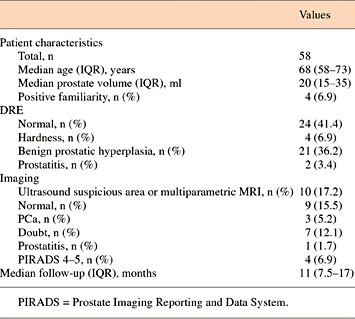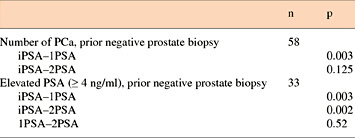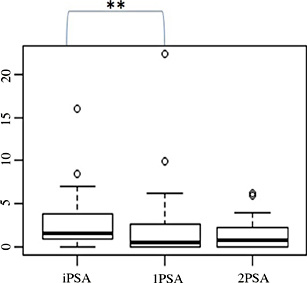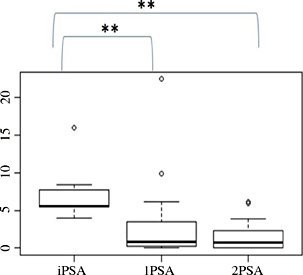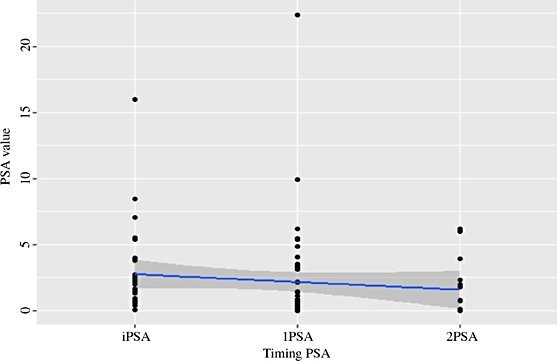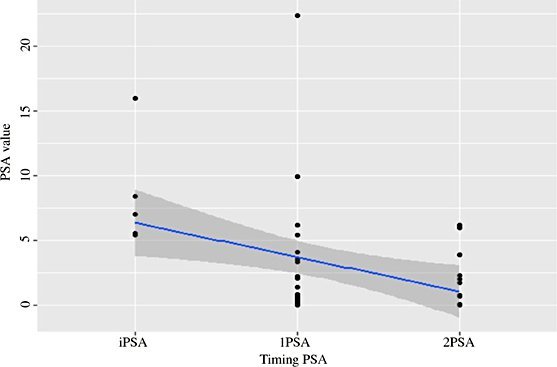Prostate-Specifc Antigen Modulatory Effect of a Fermented Soy Supplement for Patients with an Elevated Risk of Prostate Cancer
2021-02-24
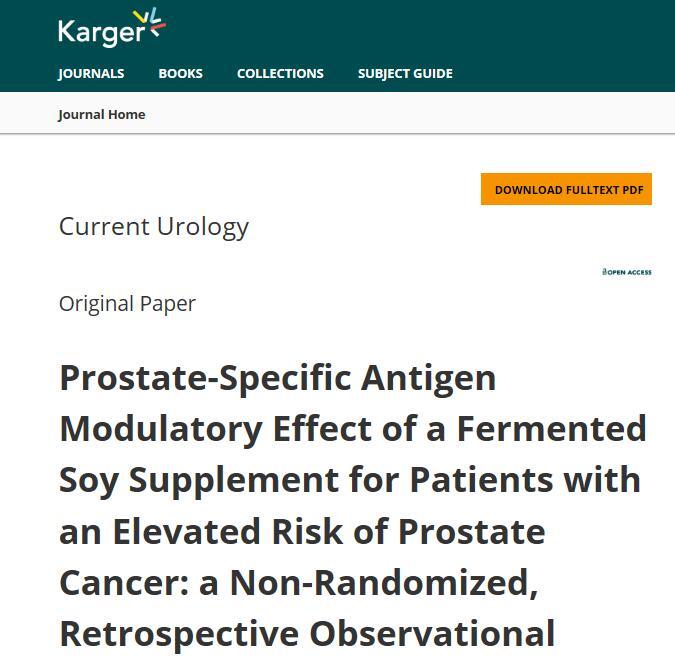
Abstract
Objective: To investigate the efficacy of a 6-month fermented soy supplement (equol-containing), measured by prostate-specific antigen (PSA) stabilization or PSA decrease from baseline (PSA modulatory effect) in men with an elevated risk of prostate cancer (PCa), with a WHO performance 0-2 and a follow-up of 12 months. Methods: The patient population consisted of men with an elevated risk of PCa and a prior negative prostate biopsy within 1 year from starting therapy. Serum PSA values were recorded at inclusion (iPSA), at 6 months (1PSA), and optionally at 12 months (2PSA). Statistical analysis was carried out using the Wilcoxon rank sum test (p < 0.05). Results: In total, 137 men used fermented soy for any prostatic reason. After inclusion criteria for an elevated risk of PCa and a prior negative prostate biopsy, we selected 58 patients. Among these, there was a significant PSA modulatory effect (iPSA-1PSA, p = 0.003). This modulatory effect was more strongly evident in the subgroup of patients with an elevated iPSA (≥ 4 ng/ml) (n = 33, iPSA-1PSA, p = 0.003, iPSA-2PSA, p = 0.002). Conclusions: We demonstrated a significant PSA modulatory effect of a 6-month fermented soy supplement in men with an elevated risk of PCa and a prior negative prostate biopsy. This positive effect is currently being investigated in a prospective study. Further evaluation of the role of fermented soy supplements is warranted in a preventive and therapeutic setting of men at an elevated risk of PCa.
© 2020 The Author(s) Published by S. Karger AG, Basel
https://www.karger.com/Article/Fulltext/499246
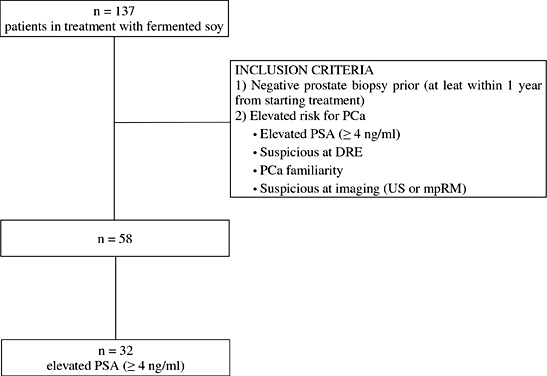
Next
Categories
Recent posts

